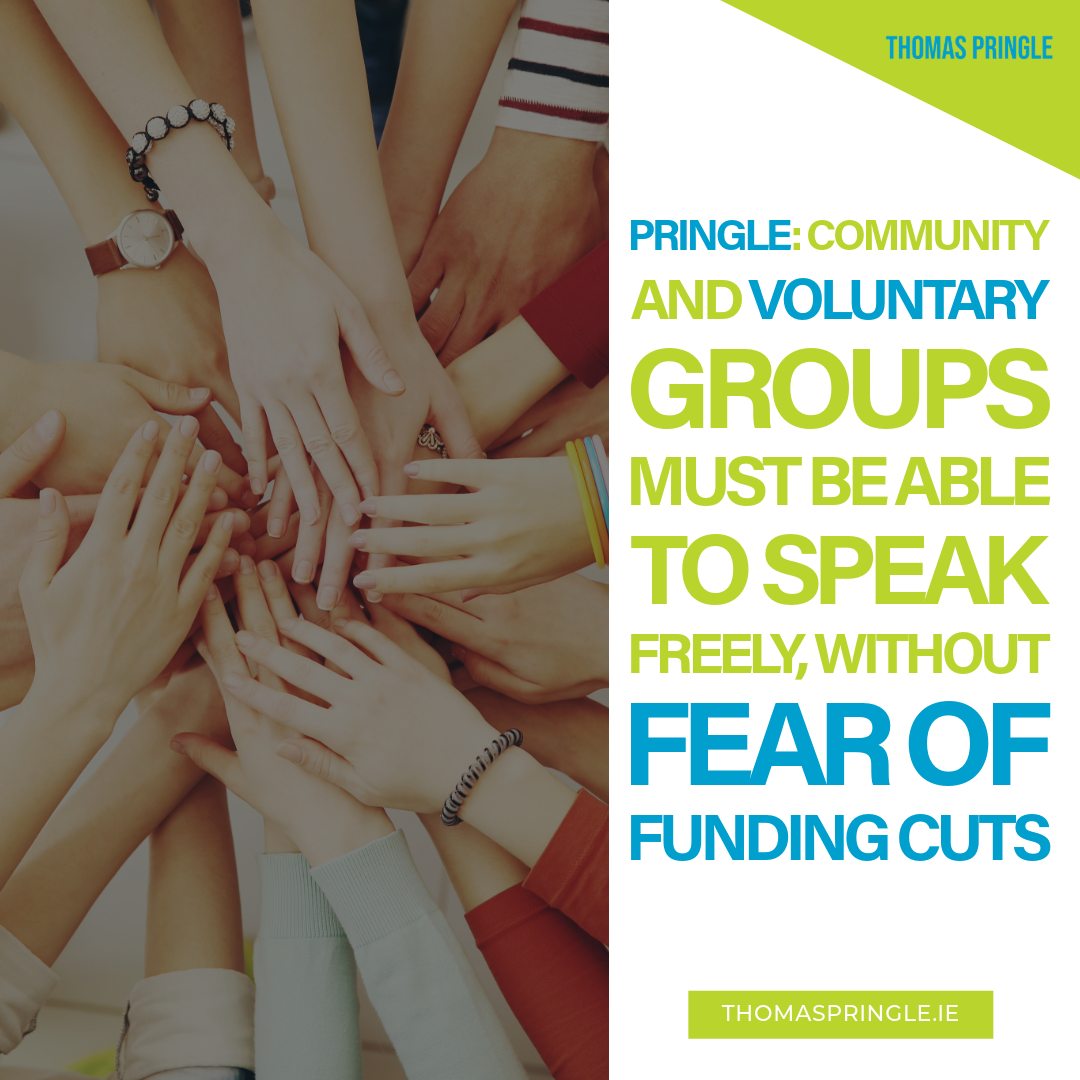- Pringle: We need a policy that recognises the importance of inshore fishing
- Pringle: Disabled people and carers face crisis of State neglect
- Pringle: Failed FF/FG housing policies forcing people to put their lives on hold
- Pringle welcomes Donegal council motion on Occupied Territories Bill: ‘We cannot stand by in the face of genocide’
Pringle: Community and voluntary groups must be able to speak freely, without fear of funding cuts
- Updated: 7th May 2024

Independent TD for Donegal, Thomas Pringle, said Government must take steps to ensure that community and voluntary organisations do not feel constrained in criticising the State, following a new report that found a troubling level of self-censorship in the sector.
Deputy Pringle said: “A new report from the Irish Council for Civil Liberties found that nearly two-fifths of the research participants, or 37 per cent, said they had curtailed their advocacy, campaigning or communications out of fear of affecting their funding. For organisations working in homelessness and addiction, that figure rose to 48 per cent, almost half of participants.
“Organisations that do such crucial work in our communities across the country should not have to hold back on their honest and informed opinions for fear of seeing their funding cut.
“We know that many of these organisations are already struggling to survive with the level of funding they receive. That they feel constrained in voicing their opinions to keep that funding is disgraceful and must be addressed.
“Not only do these organisations provide vital supports and services to some of our most vulnerable people, but because of their work on the ground they are best placed to report on what is needed in their areas.
“The Government must encourage robust engagement from these dedicated organisations in order to best serve the public and ensure our public policy is informed by the best information available,” he said.
According to the new ICCL report, “That’s not your role”: State Funding and Advocacy in the Irish Community Voluntary and Non-profit Sector, findings suggest, “There is also a very strong perception amongst participants that organisations which dissent from government policy are at significant risk of having their funding cut, and that the State would prefer if the sector engaged in no advocacy or campaigning at all, despite their right to do so.”
Deputy Pringle said: “The ICCL report makes seven recommendations on funding and stakeholder engagement. These include calling for all funding agreements between the State and NGOs to state clearly that acceptance of funding does not preclude criticism of government policy or campaigning and advocacy. They also call for the Irish Human Rights and Equality Commission to develop a set of guidelines for the sector and funders that outline their rights and responsibilities regarding freedom of association and expression. And they call on the State to commission a full investigation into the prevalence of self-censorship in the sector.
“The ICCL report also calls on Government to improve communication of stakeholder engagements, such as public consultations, and to examine obligations under the Aarhus Convention that Government take ‘due account’ of issues that concerned parties raise as part of stakeholder consultations and develop similar guidelines for development of non-environmental policy.
“This is very important. Just this past week I spoke in the Dáil on two pieces of legislation, Supports for Survivors of Residential Institutional Abuse Bill 2024 and Defence (Amendment) Bill 2024. In both cases the Government failed to take on board committee recommendations that came from consultations with survivors and other stakeholders.
“This Government must stop using consultations as a box-ticking exercise and start engaging meaningfully, if our public policies are to reflect and address the needs of the people. Community and voluntary organisations must feel free to criticise Government policy, where necessary, and advocate for the changes we need,” he said.



